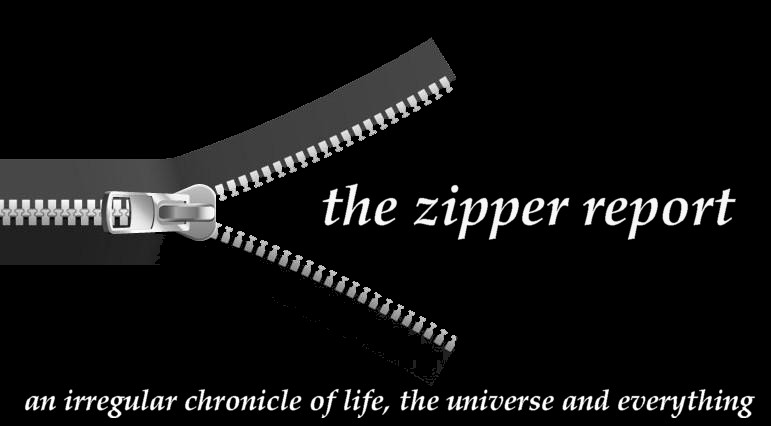By now, I doubt there's anyone who hasn't heard the theatrical tradition that there's a curse connected with Shakespeare's play, MACBETH and that one should never do what I've just done: call it by name - especially inside a theater.
You are, in fact, supposed to refer to it as "the Scottish play". And should you happen to slip and break the taboo, there are a series of silly rituals to be performed to prevent impending disaster.
Some say it's all to do with Shakespeare using genuine witches' incantations, others that the spirit of the real King MacBeth resents the way he's been portrayed.
In any case, there have been deaths during the staging of the play - including one at its premiere, when a real dagger was substituted for a prop one.
In the 1940s, London's Drury Lane Theater was the scene of another tragic accident when the ballpoint tip came off McDuff's sword and the actor playing Macbeth was wounded and later died of blood poisoning. (According to psychic medium, Derek Acorah, the ghosts of both impaler and impalee still haunt the theater.)
But I have no qualms about shouting the Scottish King's name inside a theater or out, because I believe a group of us involved in a college production of MACBETH in Chicago back in the mid-1960s are forever spared the curse. And I'll tell you why.
I'd joined the troupe of actors at Loyola which included David Perkovitch, Keith Urban (the dancer, not the singer) and a number of other classic characters; because majoring in Philosophy was boring me to tears. And these people were all clearly mad and were willing to admit it, which made a refreshing change.
So, my hopes for our production of MACBETH were high.
The fellow cast as the King had a deep, rumbling voice and (better still) came with an already impressive, well-trimmed beard. Keith, who played McDuff, was tall, handsome and athletic. And the fact that the two were roommates meant they had plenty of time to practice their big fight scene, the violently climatic moment of the piece.
They were unusually secretive about their progress, though, and gave the first preview of the duel only at the full dress rehearsal.
Even for those of us watching from the wings, it was chillingly realistic. They had worked long and hard to make the brutal ballet incredibly convincing, and their work had paid off.
Come opening night, we all looked forward to seeing the battle again and to watching the effect it would have on our audience.
Finally, it was time for the arch-foes to square off. Steel clashed, feet stomped, bodies leaped about the stage, so that no corner of it seemed safe from their fury.
And it was obvious the lads were enjoying the action every bit as much as the rest of us - perhaps a little too much.
MacDuff lunged and MacBeth parried with such force that he actually flung the sword right out of MacDuff's hand. It went clattering across the stage. And suddenly, there stood our villain, waiting to be killed by a hero who was totally unarmed.
The audience gasped.
They knew how things were supposed to end. But now, it looked as if there was no way for the play to finish as it was supposed to finish.
They knew how things were supposed to end. But now, it looked as if there was no way for the play to finish as it was supposed to finish.
Then, in a redeeming moment I shall never forget, the actor playing MacBeth had a flash of inspiration. He stopped, turned to his foe and, with the grace of a cavalier, motioned for him to pick up his weapon.
The audience cheered.
And right then, theater history was made. The man portrayed for centuries as a cold-blooded villain was given a touch of tragic humanity he must surely have appreciated.
And in that instant, I fancy, MacBeth forgave us.
So, I'll go on speaking his name; and I hope the others in that cast will, too. For among actors, we are all blessed.
And henceforth, the Thane of Cordor can direct his curses to those who really deserve them - those deceitful hags who started all the trouble in the first place.



No comments:
Post a Comment